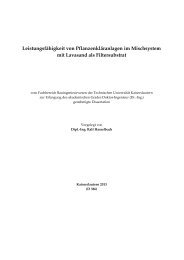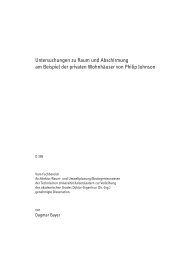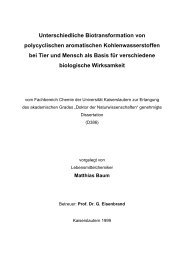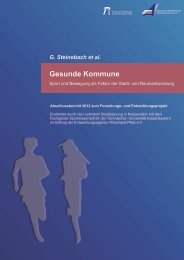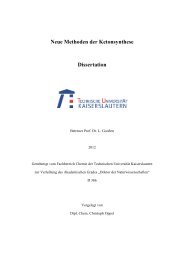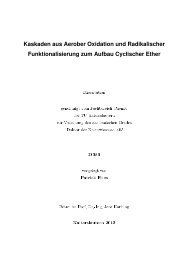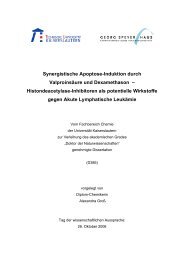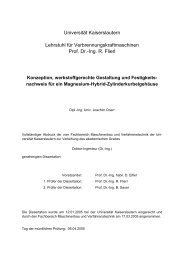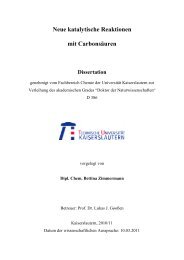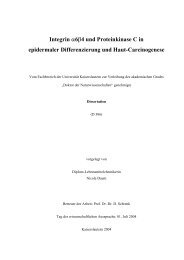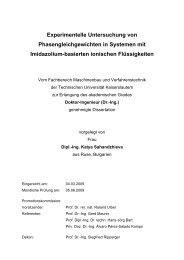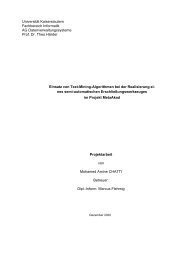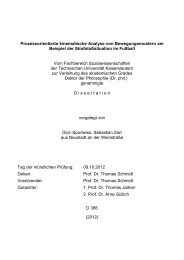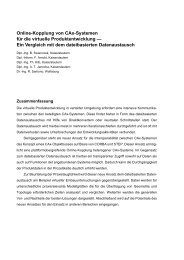ecology of phasmids - KLUEDO - Universität Kaiserslautern
ecology of phasmids - KLUEDO - Universität Kaiserslautern
ecology of phasmids - KLUEDO - Universität Kaiserslautern
You also want an ePaper? Increase the reach of your titles
YUMPU automatically turns print PDFs into web optimized ePapers that Google loves.
Adult female feeding preference & nymph performance 76<br />
forest (Croat 1978). Considering it’s high acceptance by M. diocles this plant species may account for<br />
the presence <strong>of</strong> M. diocles in the understory (cf. Chapter 2). In addition, while many <strong>phasmids</strong> flick and<br />
drop their eggs (Bedford 1978), M. diocles attaches them to a substrate and indicating a selective<br />
oviposition behavior.<br />
4.5.3 Conclusions<br />
The study presented here, demonstrated that particularly M. diocles nymphs may be exposed to severe<br />
selection pressure depending on its food source. Differential mortality <strong>of</strong> nymphs depending on the host<br />
plant may directly (survival) or indirectly (slow-growth high-mortality) contribute to population control<br />
<strong>of</strong> M. diocles. Further studies on M. diocles should particularly focus on oviposition behavior for one<br />
striking reason: If an evolved life history trait, such as female choice <strong>of</strong> oviposition, is strongly linked to<br />
<strong>of</strong>fspring performance then the reproductive response <strong>of</strong> females to host plant quality is the critical<br />
factor regulating population densities (Craig et al. 1989).<br />
Now, does the fact that M. diocles seemed not to be affected by physical plant defenses contradict its<br />
specialization? I tend to say no. M. diocles was not affected by natural contents <strong>of</strong> leaf tannins or<br />
phenols <strong>of</strong> its host plants indicating that this phasmid can handle the large variability in secondary<br />
compounds in its host range. This supports the consideration <strong>of</strong> M. diocles as herbivore specialist,<br />
simply because host range is ultimately defined by the occurrence <strong>of</strong> deterrent compounds in non-hosts<br />
(Bernays & Chapman 1994).



